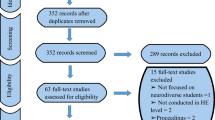Abstract
The inability to successfully navigate the educational system can cause serious problems for children, their parents, the Indian society, and the world at large. When children are required to engage in academic exercises which require attention, specific cognitive abilities and processes, and demonstrations of learning, a subset of these children are unable to perform due to some type of intellectual, emotional, behavioural, physical, or environmental deficit. Any combination of these factors can result in school failure. Although, resources for remedial or special education services in Southeast Asia and India are particularly meager, efforts must be directed towards the retention and achievement of those children who do enroll in primary and secondary schools. Learning disability represents a major form of impairment in society, and much more needs to be done to bring about a general awareness of its consequences. An urgent priority is the education of physicians and teachers about disorders of cognition, learning, and attention.
Similar content being viewed by others
References
Revitalizing the education system.The Hindu. The Hindu and The India Information, inc. 1996.
Pratinidhi AK, Kurulkar PV, Garad SG and Dala M. Epidemiological aspects of school dropouts in children between 7.15 years in rural Maharasthra.Ind J Pediatr 1992; 59: 423–427.
Rise is suicide cases in Kashmir.The Hindu: States briefs. The Hindu and Tribeca internet initiatives, inc. 1997.
Lyon GR. Learning disabilities.The Future of Children-Special Education for Students with Disabilities. 1996;6 (1): 54–76.
United Nations Children's Fund (UNICEF): Table 4. Education. Statistical tables.The state of the worlds' children 1996. UNICEF Publications, 1996.
Mulgu S, Reddy P. Educational system partly to blame for child labour. Businessline Indiaserver, 1998.
United Nations Information: Cyberschoolbus Asia. United Nations Publications 1997.
Schachter DC, Pless IB, Burk M. The prevalence and correlates of behavioural problems in disbled children.Canadian Journal of Psychiatry, 1991; 36 (6): 323–331.
Stanley PD, Dai, Y, Nolan RF. Differences in depression and self esteem reported by learning disabled and behavior disordered middle school students.J Adoles 1997; 20 (2): 219–222.
Blumsack J, Lewandowski L, Waterman B. Neurodevelopmental precursors to learning disabilities: a preliminary report from a parent survey.Journal of Learning Disabilities. 1997; 30 (2): 228–237.
Branch WB, Cohen MJ, Hynd GW. Academic achievement and attention-deficit/hyperactivity disorder in children with left or right hemi-sphere dysfunction.Journal of Learning Disabilities 1995; 28 (1): 35–43, 64.
World Health Organization:International Statistical Classification of Diseases and Related Health Disorders ICD-10. Geneva Switzerland.World Health Publications 1997.
American Psychiatric Association: Disorders first diagnosed to infancy, childhood and adolescence.Diagnostic and Statistical Manual of Mental Disorders 4th edn. pp 46–52. Washington DC. American Psychiatric Association, 1994: 46–52
Tsatsanis KD, Fuerst DR, Rourke BP. Psychosocial dimensions of learning disabilities: External validation and relationship with age and academic functioning.Journal of Learning Disabilities, 1997; 30 (5): 490–502.
Rock EE, Fessler MAS, Church RP. The concomitance of learning disabilities and emotional/behavioural disorders: A conceptual model.Journal of Learning Disabilities. 1997; 30 (3): 245–263.
Spreen, O. Prognosis of learning disability.Journal of Consulting and Clinical Psychology, 1988; 56 (6): 836–42.
Shenoy J, Kapur M, Kaliaperumal VG. Psychological disturbance among 5–8 year olds.Social Psychiatry and Psychiatric Epidemiology 1998; 33 (2): 66–73.
Smith DS, Nagle RJ. Self-perceptions and social comparisons among children with LD.Journal of Learning Disabilities. 1995; 28 (6): 364–371.
Price LA, Johnson, JM, Evelo S. When academic assistance is not enough: addressing the mental health issues of adolescents and adults with learning disabilities.Journal of Learning Disabilities. 1994; 27 (2):82–90.
Dyson LL. The experiences of families of children with learning disabilities: parental stress, family functioning, and sibling self-concept.Journal of Learning Disabilities. 1996; 29 (3): 280–286.
Falik LH, Family patterns of reaction to a child with a learning disability: a mediational perspective.Journal of Learning Disabilities. 1995; 28 (6): 335–341.
Barshop BA. Haas RH. Abnormalities of Amino Acid Metabolism, In: Berg BO, (ed)Principles of Child Neurology, New York: McGraw-Hill Companies. 1996: 997–1048.
Haas RH, Marsden DL. Disorders of Organic Acids. In: Berg BO (ed).Principles of Child Neurology. New York: McGraw-Hill Companies. 1996: 1049–1090.
Hall BD. Chromosomal Abnormalities. In: Berg BO (ed)Principles of Child Neurology. New York: McGraw-Hill Companies. 1996: 651–664.
Sarnat HB. Dysgenesis of the Central Nervous system. In: Berg BO (ed).Principles of Child Neurology. New York: McGraw-Hill Companies. 1996: 629–650.
Denckla MB. The Child with developmental disabilities grown up: adult residua of childhood disorders.Neurologic Clinic 1993; 11 (1): 105–125.
Majnemer A, Shevell MI. Diagnostic yield of the neurologic assessment of the developmentally delayed child.J Pediatr 1995; 127: 193–199.
Barga N. Studients with learning disabilities in education: managing a disability.Journal of Learning Diabilities. 1996; 29 (4): 413–421.
Author information
Authors and Affiliations
Rights and permissions
About this article
Cite this article
Pratt, H.D., O'Donnell, D. & Orfuss, M.F. Disorders of cognition, attention and learning. Indian J Pediatr 66, 401–414 (1999). https://doi.org/10.1007/BF02845534
Issue Date:
DOI: https://doi.org/10.1007/BF02845534




